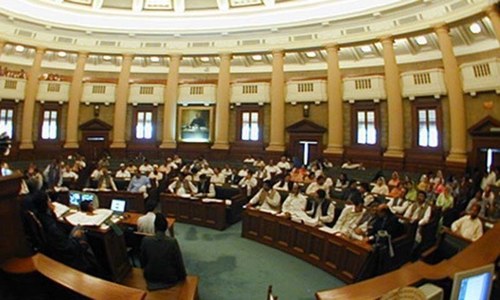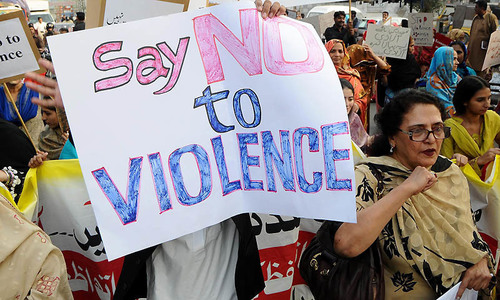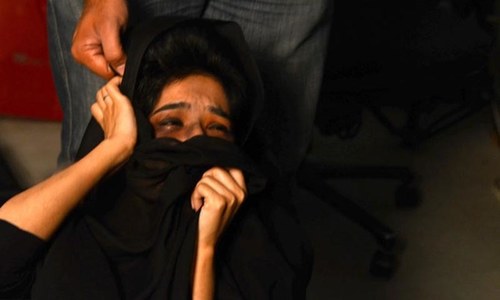Punjab's pro-women law against constitution, Shariah: Fazl
HYDERABAD: Jamiat-i-Ulema Islam (Fazl) chief Fazlur Rehman remained highly critical of Punjab Assembly’s recent pro-women enactment and termed it a law which is in conflict with the Constitution and certain Shariah laws simultaneously.
While talking to journalists in Hyderabad on Saturday, the JUI-F chief described it as an NGO-driven legislation, saying “NGOs follow the west for their pecuniary interests”.
Fazl maintained that this law seeks to intrude the privacy of every individual and it would torment Pakistan’s strong family structure which is something lacking in the West.
“Husband and wife are considered partners in the West, but it is not the case in Pakistan,” he said and explained that the protection offered under this law is already available in the existing laws.
“Islam gives respect to women in a manner that no other law in the world ensures,” said the JUI-F chief, adding that “this law makes a man insecure”.
Fazl wondered “it is the same PML-N which didn’t sign pro-women legislation in Musharraf era but now it has gone even many steps further to introduce a controversial law”.
What kind of distortion is this and what it wants to make of Pakistan? he asked and said “it is an attempt to make Pakistan a colony again”.
Extension of army chief
Fazl said that matter of extension of the army chief had been pointlessly made an issue in the country as if it is the army chief himself who has to decide whether to extend his current tenure or not.
I think it is the constitutional power and authority of the prime minister and the government to extend it or otherwise, said the JUI-F chief
“Such debate [extension in army chief’s tenure] doesn’t look appropriate in democratic dispensation,” he said when it was pointed to him that politicians are talking about a possible extension and even advertisements are seen in this regard.
He clarified that since in Pakistani democracy the institution of military has certain edge therefore an impression is being created as if it depends on the army chief himself to extend his tenure.
“It happens only in martial law where the chief martial law gets his tenure extended,” Fazl maintained.
“Leave it for the people who are constitutionally empowered to take a decision in this regard and if they allow extension then no one should object it and if the tenure is not extended then anyone shouldn’t object either,” he remarked.
He said that it is institution of army which is engaged and if there is any change in command then new chief would devise to move forward.
“I don’t want to discuss the extension of army chief, however, there is no doubt that the current army chief enjoys good reputation,” he said.
Fazl points flaws in National Action Plan
In response to a question Fazl dwelt at length on National Action Plan (NAP), asking why the civilian institutions including judiciary are presented as helpless. “Why are we told that military courts are inevitable?” he questioned.
The JUI-F chief said he failed to understand why the sect-based related clauses are inserted in 21st Amendment and why the religious institutions in the country, which happens to be a Muslim state, are presented as centers of terrorism.
“Show some amount of shame,” Fazl lamented.
















































